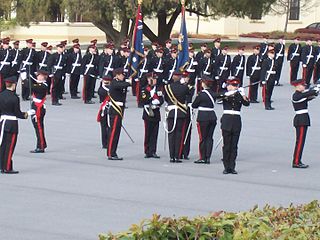
A military academy or service academy is an educational institution which prepares candidates for service in the officer corps. It normally provides education in a military environment, the exact definition depending on the country concerned.

The Bangladesh Armed Forces are the combined military forces of the People's Republic of Bangladesh. It consists of the three uniformed military services: the Bangladesh Army, the Bangladesh Navy and the Bangladesh Air Force. The Armed Forces are under the jurisdiction of Ministry of Defence of the Government of Bangladesh, and is directly administered by the Armed Forces Division of the Prime Minister's Office. The President of Bangladesh serves as the Commander-in-Chief of the Bangladesh Armed Forces. It has the third-largest defence budget in South Asia and according to the Global Firepower index it is the third most powerful military force in South Asia. Border Guard Bangladesh and Bangladesh Coast Guard are under the jurisdiction of the Ministry of Home Affairs during peacetime, but during wartime they fall under the command of Bangladesh Army and Bangladesh Navy respectively.
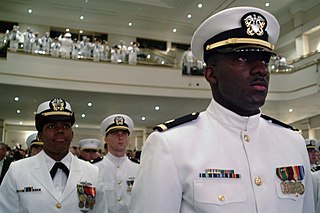
The Reserve Officer Training Corps is a group of college- and university-based officer-training programs for training commissioned officers of the United States Armed Forces.
Corporal is a military rank in use by the armed forces of many countries. It is also a police rank in some police services. The rank is usually the lowest ranking non-commissioned officer. In some militaries, the rank of corporal nominally corresponds to commanding a section or squad of soldiers.
Staff sergeant is a rank of non-commissioned officer used in the armed forces of many countries. It is also a police rank in some police services.
Lance Corporal is a military rank, used by many English-speaking armed forces worldwide, and also by some police forces and other uniformed organisations. It is below the rank of corporal and is typically the lowest non-commissioned officer (NCO).
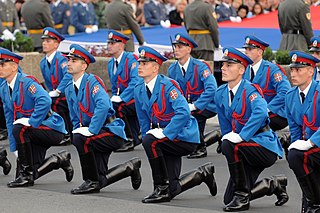
A cadet is an officer trainee or candidate. The term is frequently used to refer to those training to become an officer in the military or maritime sector, often a person who is a junior trainee. Its meaning may vary between countries which can include youths in voluntary youth organisations.

The National Cadet Corps (NCC) is the youth wing of the Indian Armed Forces with its headquarters in New Delhi, India. It is open to school and college students on voluntary basis as a Tri-Services Organisation, comprising the Army, the Navy and the Air Force, engaged in developing the youth of the country into disciplined and patriotic citizens. The soldier youth foundation in India is a voluntary organization which recruits cadets from high schools, higher secondary, colleges and universities all over India. The cadets are given basic military training in small arms and drill. The officers and cadets have no liability for active military service once they complete their course.

The Pakistan Army, commonly known as the Pak Army is the land service branch and the largest component of the Pakistan Armed Forces. The President of Pakistan is the Supreme Commander of the Army. The Chief of Army Staff (COAS), a four-star general commands the army. The Army was established in August 1947 after Pakistan gained independence from the United Kingdom. According to statistics provided by the International Institute for Strategic Studies (IISS) in 2023, the Pakistan Army has approximately 560,000 active duty personnel, supported by the Pakistan Army Reserve, the National Guard and the Civil Armed Forces. Pakistani citizens can enlist for voluntary military service upon reaching 16 years of age, but cannot be deployed for combat until the age of 18 in accordance with the Constitution of Pakistan.


The Pakistan Air ForceAcademyAsghar Khan is an accredited three-year military academy which provides undergraduate education to officer candidates for the Pakistan Air Force. The eligible and selected candidates from all over Pakistan are sent to PAF Academy Risalpur for flying training. It is located in the town of Risalpur in Nowshera District of the Khyber Pakhtunkhwa province in northwestern Pakistan, it is a premier cadet training institution of the Pakistan Air Force which offers academic professional degrees. Its role is the training of General Duty Pilots (GDP), Aeronautical and Avionics Engineers and the initial training of other Ground Branch cadets. Cadets of all branches join the academy following a recommendation by the Inter Services Selection Board (ISSB) of Pakistan and the Air Headquarters Special Selection Board for Short Service Commission candidates. Graduates of the Academy's four-year program receive a Bachelor of Science degree, and are commissioned as Flying Officers (Lieutenants) in the Pakistan Air Force.
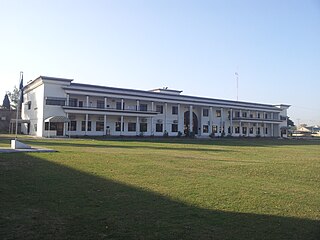
The Military College of Signals, also known as MCS, is a military school located in Rawalpindi, Punjab, Pakistan. It is a constituent college of the NUST, Islamabad. MCS consists of two engineering departments, EE & CSE. The college puts a strong emphasis on scientific and technological education and research.

Pakistan Military Academy, also referred to by its acronym PMA, is an officers training centre located near Kakol village in the city and district of Abbottabad, Khyber Pakhtunkhwa. Established in October 1947, it is the sole service academy in Pakistan tasked with training cadets to serve as army officers. For educational training, the institution is accredited by NUST.
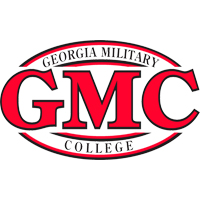
Georgia Military College (GMC) is a public military junior college in Milledgeville, Georgia. It is divided into the junior college, a military junior college program, high school, middle school, and elementary school. It was originally known as Middle Georgia Military and Agricultural College, until 1900. Although it is a state-funded institution, GMC is not affiliated with either the University System of Georgia or the Technical College System of Georgia.
The National Cadet Corps (NCC) is a youth organisation in Sri Lanka, sponsored by the Ministry of Defence, which operates in schools, and normally includes Army, Navy and Air Force sections. The corp is open for secondary school students on voluntary basis and its officers are government teachers and educational administrators, who serve as instructors. The Cadets are given basic military training in small arms and parades, as well as leadership training.
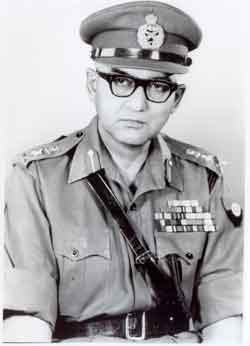
General Gopal Gurunath Bewoor PVSM, PB was a senior officer of the Indian Army who served as the 8th Chief of Army Staff, and later an Indian diplomat to Denmark.
The National Guard is a military reserve force and a component of the Pakistan Army, designed to act as a "second line of defence", together with the Pakistan Army Reserve and the Civil Armed Forces.

The Junior Reserve Officer Training Corps is a federal program sponsored by the United States Armed Forces in high schools and also in some middle schools across the United States and at US military bases across the world. The program was originally created as part of the National Defense Act of 1916 and later expanded under the 1964 ROTC Vitalization Act.
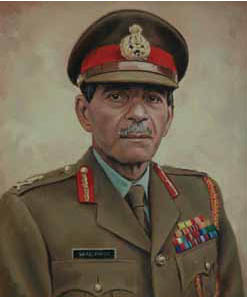
Lieutenant General Walter Anthony Gustavo 'WAG' Pinto, PVSM was a General Officer in the Indian Army. He last served as the 8th General Officer Commanding-in-Chief of the Central Command. As a major general, he led the 54th Infantry Division on the western front in the Indo-Pakistani War of 1971, for which he was awarded the Param Vishisht Seva Medal.














